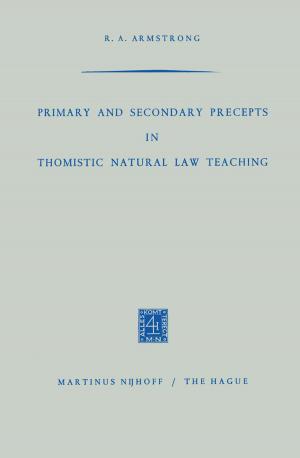Theory and Experiment
Recent Insights and New Perspectives on Their Relation
Nonfiction, Science & Nature, Science, Other Sciences, Philosophy & Social Aspects| Author: | ISBN: | 9789400928756 | |
| Publisher: | Springer Netherlands | Publication: | December 6, 2012 |
| Imprint: | Springer | Language: | English |
| Author: | |
| ISBN: | 9789400928756 |
| Publisher: | Springer Netherlands |
| Publication: | December 6, 2012 |
| Imprint: | Springer |
| Language: | English |
This is not "another collection of contributions on a traditional subject." Even more than we dared to expect during the preparatory stages, the papers in this volume prove that our thinking about science has taken a new turn and has reached a new stage. The progressive destruction of the received view has been a fascinating and healthy experience. At present, the period of destruction is over. A richer and more equilibrated analysis of a number of problems is possible and is being cru'ried out. In this sense, this book comes right on time. We owe a lot to the scholars of the Kuhnian period. They not only did away with obstacles, but in several respects instigated a shift in attention that changed history and philosophy of science in a irreversible way. A c1earcut example - we borrow it from the paper by Risto Hilpinen - concerns the study of science as a process, Rnd not only as a result. Moreover, they apparently reached several lasting results, e.g., concerning the tremendous impact of theoretical conceptions on empirical data. Apart from baffling people for several decades, this insight rules out an other return to simple-minded empiricism in the future.
This is not "another collection of contributions on a traditional subject." Even more than we dared to expect during the preparatory stages, the papers in this volume prove that our thinking about science has taken a new turn and has reached a new stage. The progressive destruction of the received view has been a fascinating and healthy experience. At present, the period of destruction is over. A richer and more equilibrated analysis of a number of problems is possible and is being cru'ried out. In this sense, this book comes right on time. We owe a lot to the scholars of the Kuhnian period. They not only did away with obstacles, but in several respects instigated a shift in attention that changed history and philosophy of science in a irreversible way. A c1earcut example - we borrow it from the paper by Risto Hilpinen - concerns the study of science as a process, Rnd not only as a result. Moreover, they apparently reached several lasting results, e.g., concerning the tremendous impact of theoretical conceptions on empirical data. Apart from baffling people for several decades, this insight rules out an other return to simple-minded empiricism in the future.















